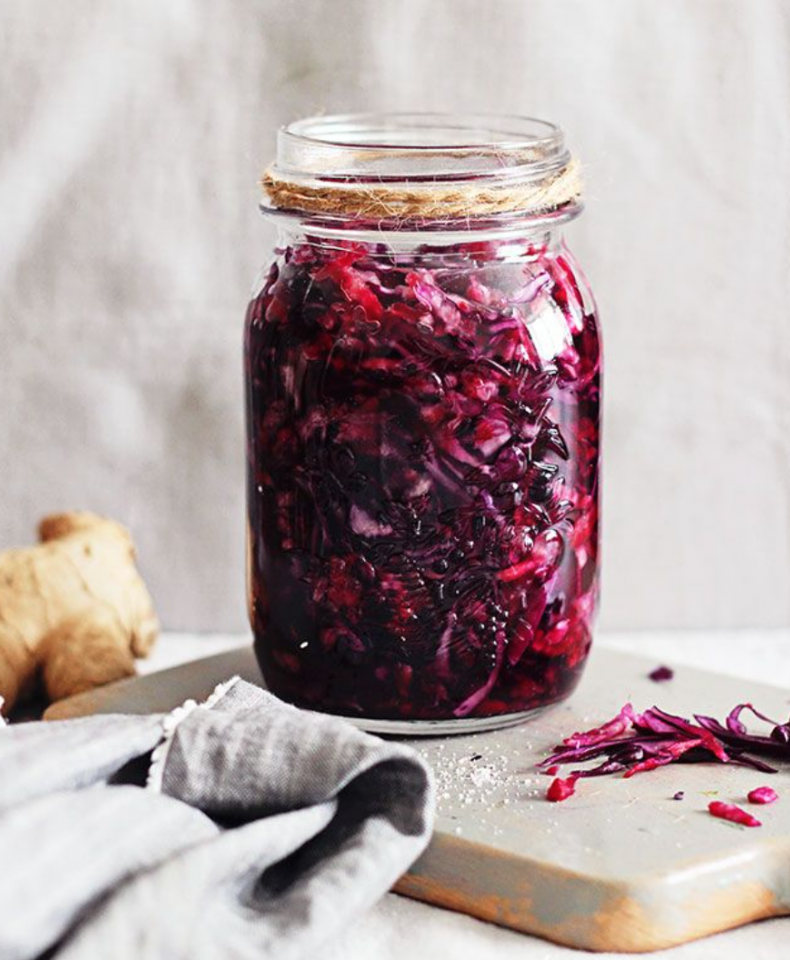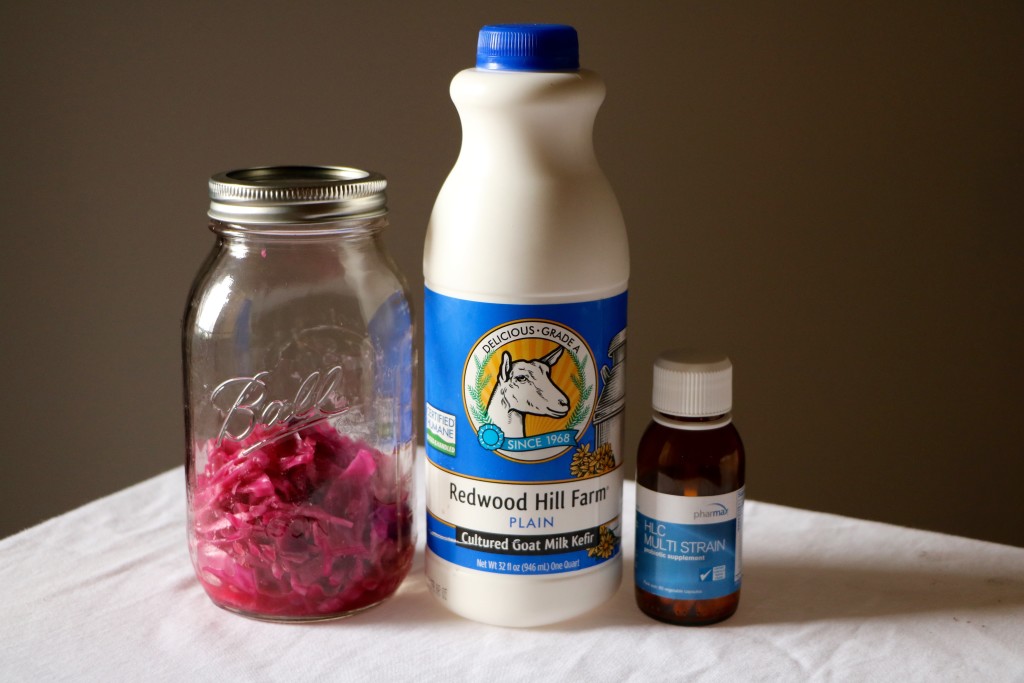 Today I’d like to share with you all a brief primer on arguably the most important topic in health and nutrition: probiotics. Some of you may be familiar with the term, and others may have never even heard of this, slightly intimidating, word. Probiotics are crucial when it comes to having and maintaining healthy digestion, and digestion is crucial when it comes to achieving optimal health! Therefore, you can glean that this is an extremely important topic. So, let’s break down what exactly probiotics are, why they are important for our inner and outer health, and how to make sure we are getting enough of them in our daily diet.
Today I’d like to share with you all a brief primer on arguably the most important topic in health and nutrition: probiotics. Some of you may be familiar with the term, and others may have never even heard of this, slightly intimidating, word. Probiotics are crucial when it comes to having and maintaining healthy digestion, and digestion is crucial when it comes to achieving optimal health! Therefore, you can glean that this is an extremely important topic. So, let’s break down what exactly probiotics are, why they are important for our inner and outer health, and how to make sure we are getting enough of them in our daily diet.
What are probiotics? Probiotics are the army of good bacteria keeping a balance with the natural occurring “bad” bacteria and yeast in our digestive system.
Keeping a healthy balance of good bacteria in our gut has a multitude of functions and benefits. For one, it helps us to fight off the bad guys, such as bacterial or viral infections. In other words, it keeps our immune systems strong and well equipped. A healthy gut ALSO helps our digestive system to operate optimally! Unfortunately, there are a lot of factors that come into play which affect our gut function including diet, lifestyle, stress level, and whether or not we have been on antibiotics, especially for an extended period of time. Antibiotics are successful when it comes to killing off bad bacteria; however, they are also excellent at killing off our beloved good bacteria. So, it is very important to restore a healthy flora of good bacteria in our gut during and after antibiotic treatment. Even if you haven’t taken antibiotics, you are not entirely safe! Sadly, the US Food Supply including meat, dairy, eggs, some fish, etc. are found to contain traces of antibiotics as well. So, the takeaway is that everyone is a candidate for increasing their probiotic intake!
Where you can get your daily dose of probiotics? There are two fundamental ways of increasing our probiotic and prebiotic intake: oral supplements and food sources.
Food Sources:
- Fermented foods such as sauerkraut and Kim Chi.
- Yogurt (organic dairy or non-dairy alternatives); there’s a lot of marketing about yogurt being high in probiotics, most yogurts don’t contain substantial amounts. *Look for Lactobacillus acidophilus and Bifidobacterium.
- Kefir (organic dairy kefir or coconut water kefir)
- Kombucha (I’m addicted to this stuff right now)
How to make your own fermented sauerkraut (see recipe below)
Supplement: I like to take : HLC Multi Strain
My favorite thing about taking probiotics is that you’re killing way more than two birds with one stone. While probiotics help to restore a healthy gut, you’ll be pleasantly surprised to find that your immune system will become stronger, your skin will become clearer, and you will feel less bloating after meals!
It’s important to remember that all of our digestive systems are different, and our bodies have different sensitivity levels. So, it’s important to do some research before deciding what type of probiotics you want to supplement into your diet. Feel free to contact me as well if you have specific digestive issues or questions and are need of some guidance!
- 1 glass jar with a air-tight lid
- 3 pounds red cabbage
- 2 Tablespoons Himalayan Pink Salt
- To prep cabbage, wash the cabbage and peel away any outermost layers. Save one layer to cover at end.
- Then cut in half, and remove the hard core from each half. Then slice VERY thin.
- Put the shredded cabbage in a large bowl with the salt and massage the cabbage to extract the all the delicious juices until it begins to soften and shrink in size.
- Pack the cabbage and juice in the mason jar a bit at a time and push down as you go.
- If the cabbage isn’t submerged under juice, add some salted water to the jar.
- Then top with extra cabbage leaves to block out remaining air.
- Cover the mason jar with a cheesecloth, or any cloth, and put rubber band around it.
- Let it sit out for 1-3 weeks. Continue to try the sauerkraut, and when you like the flavor, cover with a lid and store in the fridge. This will slow down the fermentation process.
- It should keep for a few months once refrigerated.
P.S. If you don’t care for the taste of Sauerkraut, but still want to supplement it into your diet, try making a guacamole-sauerkraut mixture! Mash avocado and add your desired toppings such as red onion, lemon, lime, salt, pepper, etc. and stir in a dollop of kraut, and enjoy!

Love + Light,
Erica


Leave a Reply